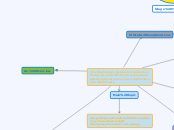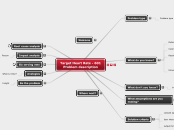Stage Three
Conscious Competence
Many companies are unaware of the benefits of social media to their firm. They may even be unaware of the tools and the platforms available, and the likely ways these when used correctly, can drive profits. The training competency to be adopted at this juncture will focus on performance improvement and show how achievement milestones can be achieved for those employees who are not mindful of the advantages of attending training sessions about social media's impact on their personal development (McElaney, n.d.).
Stage Two
Stage One
Conscious Incompetence
Because the learner at this stage is fully aware that he/she knows how social media is involved in developing the training skills, that learner uses the available activities and tools to make learning more fun and geared toward constant development. Since the skills have been improved, the learner can better manage future learning which achieves long term training objects; completes projects and participates in activities geared for building competence (McElaney, n.d.).
Unconscious Incompetence
During this stage of skill building, the learner is aware that social media has widespread applications throughout companies, and there is the necessity for making minor steps for mastery of the established competencies, which are accessible from peer observations. With an effort, he/she soon realizes how they can share information in their learning networks so that more value can be created within the pool of knowledge available. This perception is likely to drive active adoption of social media in everyday work (McElaney, n.d.).
References
Effects of Social Media
- Learners can use their social media communities to extend friendships and build collaboration outside of instructor defined groups.
- Users can find content on specific topics quicker and easier, through the use of tags, which are used for supporting social networking. This could well serve the purpose of narrowing interests, hobbies, and geographical locations.
- Through social media, learning groups can work collaboratively through discussion boards, blogs, page and other resource sharing. These all serve as excellent motivators for individual learning (Silius, Miilumäki, & al., n.d.).
Adult Learning Theories
Transformational Learning
This theory holds that the personal experience is an essential part of the learning process and that a learner's understanding of the skills creates meaning, which directs the learner to a change in the function, mindset, and beliefs. It is therefore essential to facilitate a change in the learner's interest structures since social learning concepts and their communities offer a guided path for these learners to apply new approaches to problem-solving and challenging assumptions. (Pappas 2016).
Self-Directed Learning
According to Azulay (n.d), the self-directed learning within an organization is individually-powered, self-administered, and is a self-motivated learner. During this learning process, the employee uses available tools such as videotaped information, recordings, books and any other forms of visual as well as auditory and kinesthetic means to increase knowledge and complete designated tasks. This learner is not afraid to utilize the experiences of others as they perform their duties, and through observations and practice, at their own pace, they are able to finish a task satisfactorily.
Experiential learning
Touted as the future of learning, this method allows the learners to develop knowledge, skills, and values from direct experiences outside a traditional academic setting. According to Holdings (2014), this method accelerates learning, provides a safe environment for the learner to express him/herself, builds collaboration and learning communities, contributes to a reliable return on the firm's investment, and facilitates personalized learning.
An Overview
OrGab Training Solutions will show learners of RedBox ROHS Inc., how to integrate social media into learning activities, which addresses employees quest for promoting self development and learning.
This presentation is designed to assist the new and young professionals in their work as they integrate learning into their goals of self-development. They will use experiential learning steps to be involved and take ownership of their learning, so that what is taught during this course has relevance to their everyday visions and is relatable to their experiences.
OrGab Training Solutions' Social Media Training Plan Presentation Designed for new employees at RedBox ROHS Inc.
Main topic
Integrating Social Media while Promoting Self-Development and Learning
Ethical Considerations
The benefits of integrating social media into the life of a company are not without its risks. These include: misuse of resources for personal gains, conflicts of interests, time wasting, and the use of the tools to belittle others. As such, a company considers how it and its employees use social media for its business by keeping in mind the following strategies for integration:
- Let the employees know the company's policy and position on social media so that they can work within the guidelines and not feel victimized by the constant monitorings.
- Hiring people and keeping those who obey the social media policies, while not employing people or discharging employees who violate proper company policies by harming the company.
- By giving the employees a reference point on social media policy, the company is unmistakenly encouraging employee use of the tool in the workplace (Workplace Ethics, 2017).
Program Competencies









